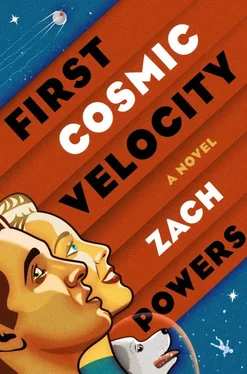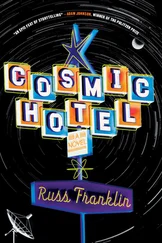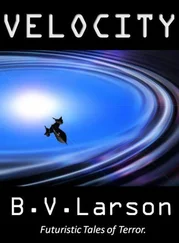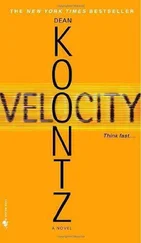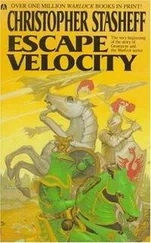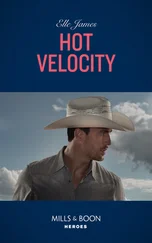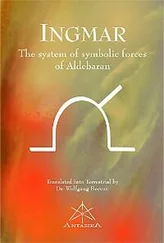Ignatius had come back once during the flight with a canteen. Leonid accepted a few sips. He handed back the canteen and she left, never speaking. Every time the plane had hit turbulence, the casket would lift several inches from the floor before slamming back down. Leonid tried to tighten the straps that secured it, but they were as tight as they could go. The last half of the flight he spent leaning on the casket’s lid, holding it steady in the rough air.
The Antonov taxied to a stop. From the front cabin came the sounds of the other passengers disembarking. A few minutes later, the rear ramp lowered. The sun shot streaks through the cracks. There were no windows in the cargo bay, only pale yellow lights that flickered every time the pilot had throttled the engines. The sunlight seemed like the first flare of an explosion. Kasha roused and sprinted down the ramp to Nadya, who had been the one to insist on bringing the dog. The Chief Designer for his part did not argue against it.
Six soldiers in full dress uniforms ascended the ramp. The one nearest Leonid saluted him. These men were junior officers, and Leonid, according to the insignias on his own uniform, outranked them. The young officer held his salute until Leonid returned it, and then took position on one corner of the casket. The soldiers hoisted the casket onto their shoulders, an action they had obviously rehearsed many times before. Leonid wondered if that was all they did, whole days spent practicing with empty coffins. The soldiers marched their burden out the back of the plane. Leonid followed.
Outside, the other passengers stood in a line that led to the airport terminal. It was only after reading the name of the airport that Leonid realized they were in Ukraine. He had never known Giorgi was Ukrainian. Giorgi spoke such perfect Russian, no hint of an accent. Leonid had never thought to ask him about his hometown. Or his family. The twins all had stories they told, but they were fabricated. It never occurred to Leonid that someone might have a real life, real stories to tell.
Ukraine! The reality of the soil beneath his feet hit him. He had not been to his own country since Tsiolkovski took him and his brother and the original Kasha from Bohdan. This was the opposite side of the country, and he had been closer to the village on his tour through Eastern Europe, but still, knowing he had crossed the border made this feel like home, no matter how imaginary the line of a border might be.
The soldiers loaded the casket into the back of a Chaika hearse waiting by the tarmac. It was the same kind of car that the cosmonauts often rode in parades, though without the retractable roof. The back of the car had giant fins like those on the models of space capsules that were shown to the public. Pure decoration. Polished chrome ornamented the car’s every seam and angle. A black-clad driver revved the engine and drove away.
Closer to the terminal, a line of black state vehicles idled, their drivers standing by open back doors. Leonid watched everyone else from Star City choose a vehicle and funnel inside. No one entered the last car in line, so Leonid chose it for himself. The driver, an older man but not elderly, bone thin and twitchy, seemed relieved to actually have a passenger. Thankfully, he did not try to strike up a conversation. Kasha slipped into the backseat with Leonid just before the driver closed the door.
Leonid watched out the windshield as the convoy snaked in front of him, undulating as the cars rounded curves, bouncing in sequence over bumps, compressing as the lead car slowed, expanding as it accelerated. To the right, the city sprawled. To the left, dense forest. The road angled just slightly toward the city, growing the buildings with every kilometer. The highway hummed under the tires.
“Is it hard to drive?” asked Leonid.
The driver looked at him in the rearview mirror, thick eyebrows scrunched over sagging lids. His eyes were a gray long since faded from pale blue. Below, a long nose protruded over a mustache that hid the whole of his mouth.
“Drive?” Leonid held his hands in front of him and moved them as if he were steering.
Looking back at the road ahead of him, the driver said something that Leonid could not understand. It sounded like gibberish. Slowly, though, the gibberish turned to words in his head. Ukrainian. He had not spoken it since he was a boy, though sometimes his thoughts still came in his native language.
Leonid asked the question again, this time in Ukrainian. “Is it hard to drive?”
The driver looked at Leonid in the mirror again. His expression shifted from confusion to shock. Apparently, Soviet officers did not speak to him in Ukrainian very often.
“I don’t think about it,” said the driver. “It’s just something I do. You don’t drive yourself?”
“Giorgi taught me the basics once, on the roads of… the place where we worked. Giorgi is the man in the casket.”
“I’m sorry,” said the driver. He glanced back again in the mirror. “Surely, though, you can master driving. You’ve flown a spaceship, after all.”
“I’m not sure the two are related,” said Leonid.
“Was he also a cosmonaut? This Giorgi?” asked the driver.
“He was a friend, more like a brother.”
“I’m sorry,” repeated the driver. “If you wish, I can let you drive the car before you leave.”
The convoy veered off the road they had been following, made a series of quick turns down side streets, and stopped alongside a cemetery wedged between two concrete tenements. The buildings here were new, but had the same worn look as everything erected by the Soviets, not much different from the headstones sandwiched between them. No aging or decay could affect these buildings because they were old from the start.
Everyone exited the cars and passed through a gateless gap in the cemetery’s low iron fence. Kasha waited by the car. One of the drivers attached a leash to her, even though she made no signs of moving. The soldiers, who had ridden in the first car behind the hearse, were already unloading the casket. They marched it through the gate, barely wide enough for them to pass, toward a fresh grave, wet black dirt piled high beside it. Several people, family members dressed for mourning, faces stretched to unusual shapes by sadness, already stood by the grave. An officer that Leonid did not recognize stood beside them. He had a hand on the shoulder of a woman Leonid assumed to be Giorgi’s mother. Her face was the same as Giorgi’s, broad features, a mouth that would likely launch into a grin on another occasion. Now, though, she wept at the sight of the casket, as did the children, teenagers maybe, beside her.
The soldiers navigated an indirect route through the close-packed graves, sometimes straddling the casket over the top of a gravestone when there wasn’t room for them all to pass on one side. By the time they reached the fresh hole, the soldiers struggled under the weight of their burden, muscles trembling as they stooped and set the casket onto the straps of the lowering device.
The officer who had been consoling Giorgi’s mother stepped forward and began to speak. Leonid ignored most of what he said, letting the words wash over him like the white noise of the Antonov’s engines. He picked up just enough to know that the man spoke as if he had been Giorgi’s superior officer, but Leonid had never seen this man at Star City. Ignatius, holding her leather jacket tight around her by the fur collar, stared intently at the officer, mouthing the words along with him. That was the story, then. Giorgi’s death, officially, had come in a plane crash. Giorgi had been a test pilot, though of planes, not spaceships. He was being posthumously awarded some sort of minor medal. Honor and the Motherland and honor and pride and superiority and honor. Leonid wanted badly for this man to shut up.
Читать дальше
